Biker Crashes in Off-Leash Dog Area and Blames Poor Labrador, Despite Dog Being Safely Held by Owner
Many dog owners want to be able to trust their dogs while they're not on a leash. However, many people have concerns about releasing the leash and allowing their dogs to roam free.
What if your dog flees and never returns? What happens if they are hurt, and what training is required before being off-leash is an option?
Letting your dog go loose has hazards, and those risks can vary depending on the situation. The decision to let a dog go free actually depends on how much risk you are willing to take on yourself.
However, local leash restrictions and ensuring your dog doesn't annoy other people or animals are also crucial factors to consider. Your dog must have a strong come-when-called cue before they may accompany you on off-leash outings.
This is true, without a doubt! By 'strong,' we mean having the ability to respond to calls even while engaged in a squirrel chase.
Off-leash time is considerably simpler for everyone when your dog has a tendency to stick close by and periodically check in with you. The OP of today's AITA story was on a hike in the public woods near his house, as he often goes there with his dog, and they hike the trails.
On a certain day, a biker came flying down fast and crashed his bike but ended up blaming the OP for not leashing his dog.
So now the OP is asking...

The other day, they were out hiking, and a biker came flying down the hill
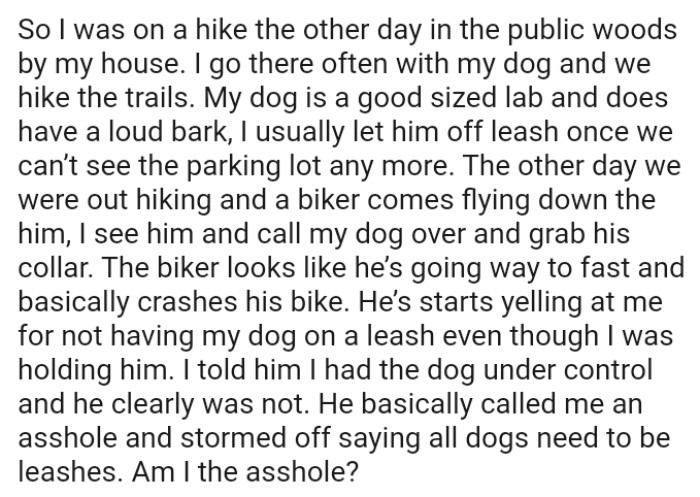
A little edit to further clarify things
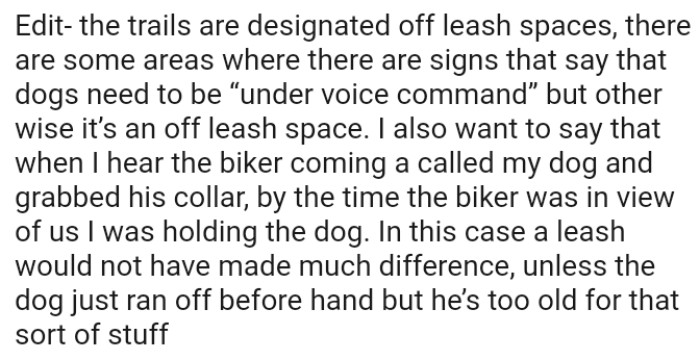
Understanding the Psychology of Blame
Dr. Emily Grant, a psychologist at Stanford University, highlights that the tendency to blame others is often rooted in a need to protect one's self-image.
This behavior, known as external attribution, allows individuals to distance themselves from responsibility, especially in situations where they feel vulnerable or at fault.
Research shows that people are more likely to project blame onto others when they perceive a threat to their self-esteem or status, which can escalate conflicts unnecessarily.
Comments rolled in, in their hundreds, and we've gathered a bunch of them for you to read through below

This redditor wants to know if bikes are allowed on trails
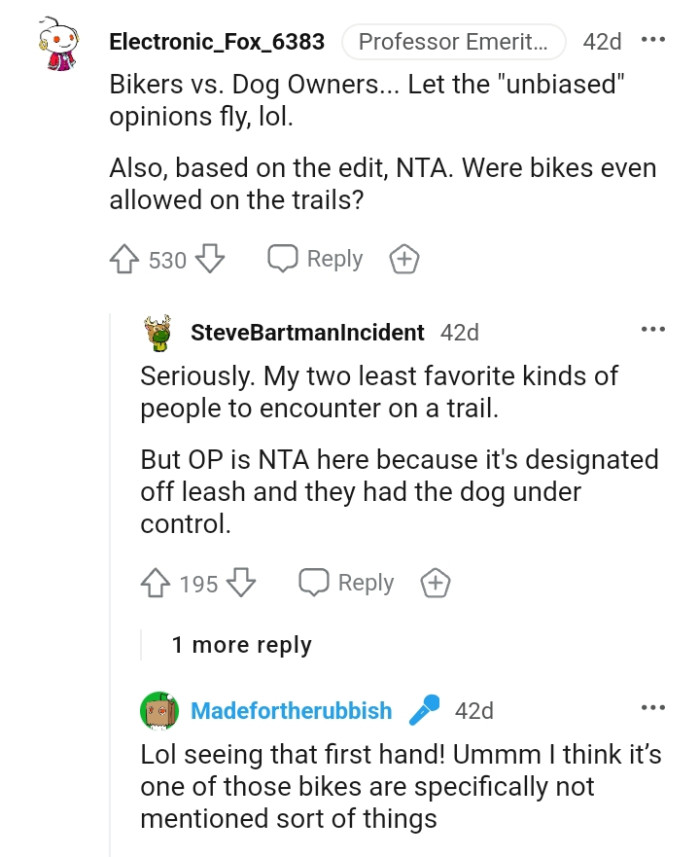
This redditor doesn't know what to say, as their dog is always leashed for safety reasons
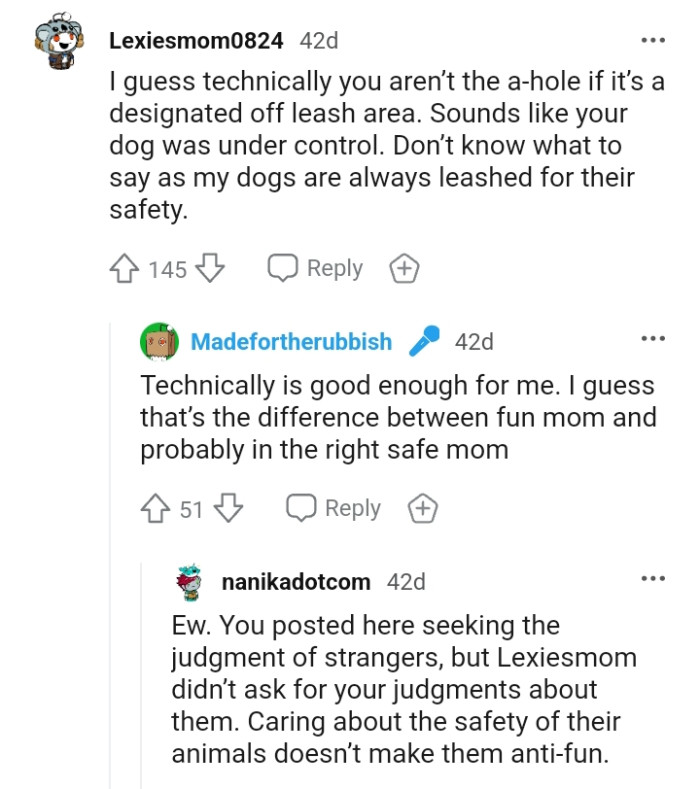
Behavioral studies indicate that individuals who frequently blame others may struggle with self-awareness and emotional regulation.
When a person feels insulted or wronged, their immediate reaction can be to deflect responsibility by shifting the focus onto others, which is a classic defense mechanism.
This not only hampers conflict resolution but can also lead to a cycle of resentment and antagonism, inhibiting healthy interpersonal relationships.
The biker was likely to encounter other wildlife in the wilderness
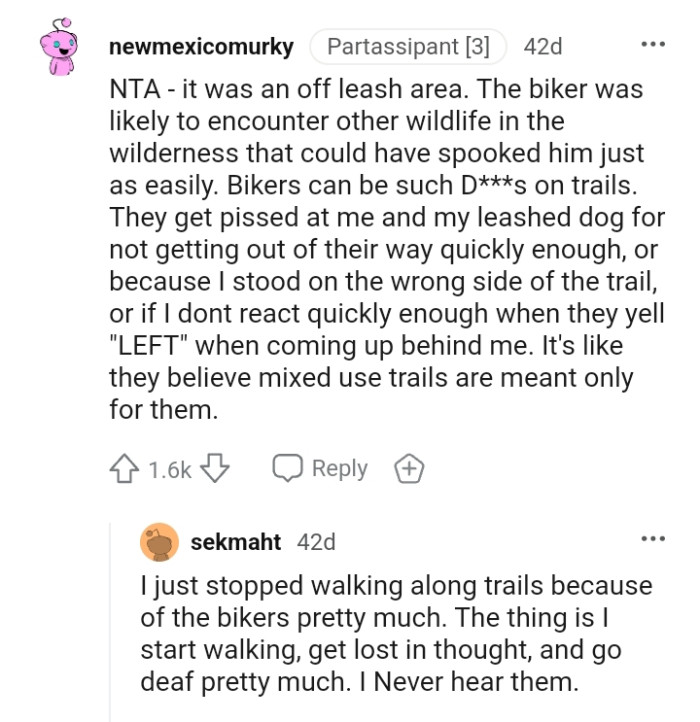
This redditor finds American attitudes toward leashing dogs so extraordinary
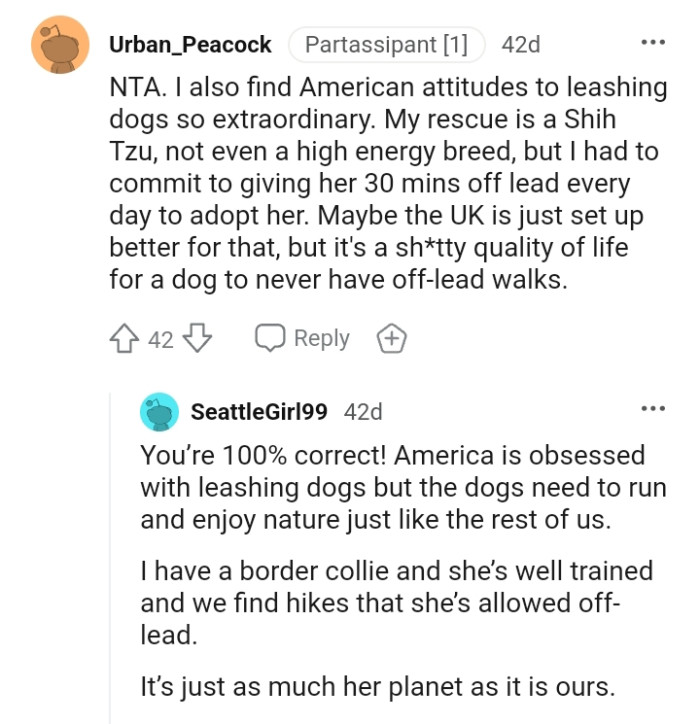
A comment from a biker:
NTA. I am a biker and have a dog, so I feel like this is 100% in my wheelhouse, lol. The biker is responsible for being under control on shared trails, as there will always be people and pets walking. If they wanted to fly through the trail unobstructed, they should have found a mountain bike-specific trail.
You are only allowed to have a well-trained dog off-leash
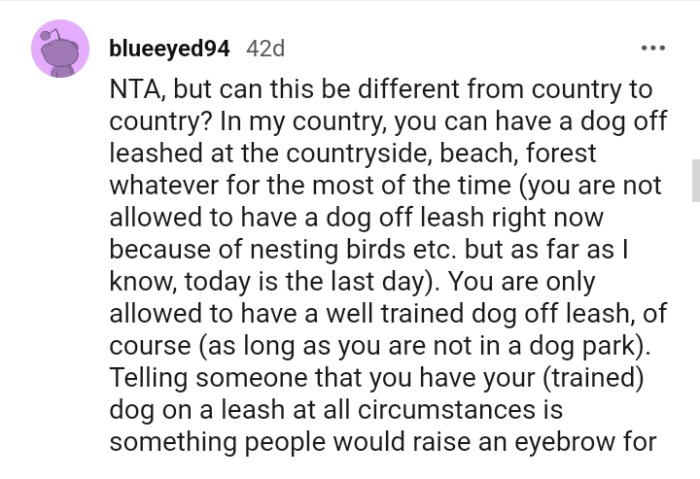
The Role of Environment in Behavior
Dr. Amanda Reyes from the University of Michigan emphasizes that context plays a significant role in shaping behavior.
In environments where individuals feel a lack of control or safety, such as public spaces with off-leash dogs, the instinct to lash out can manifest as blame-shifting.
Understanding these environmental triggers is crucial in addressing the underlying emotions and reactions that lead to conflict.
This redditor wants to know the rules surrounding leashes in the OP's area
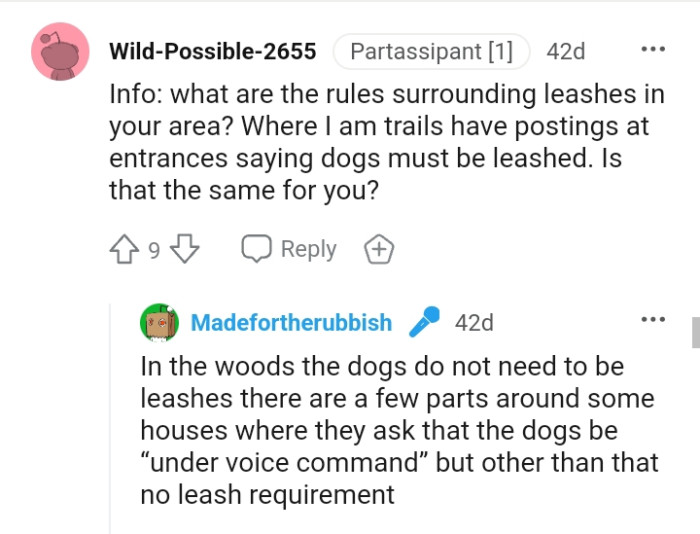
This redditor doesn't let their dogs off-leash where it is not allowed
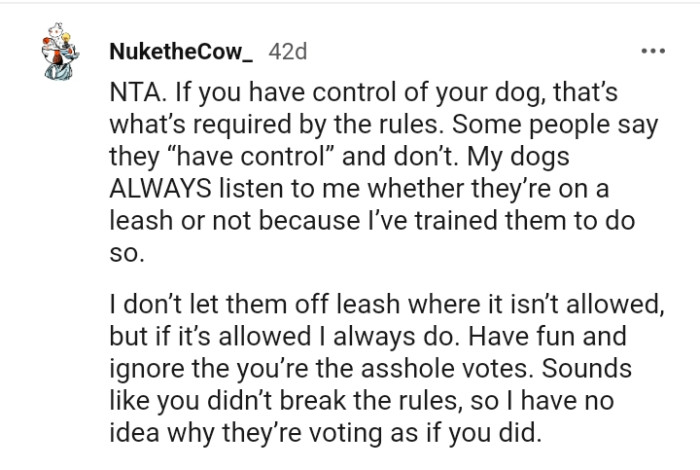
The dog was allowed off-leash and was under the OP's control
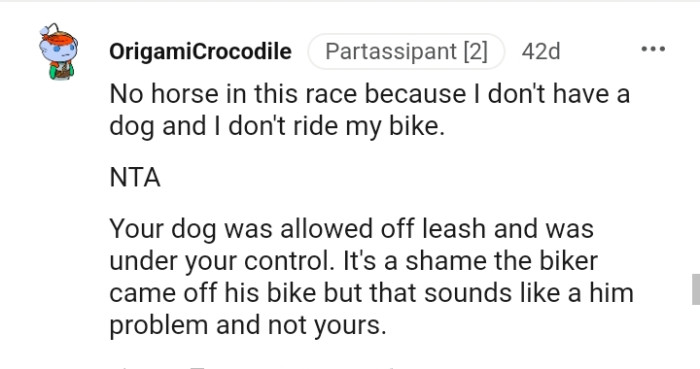
According to research in the Journal of Personality and Social Psychology, interventions focusing on empathy and perspective-taking can significantly improve conflict resolution.
Promoting an understanding of others' viewpoints not only helps in fostering better relationships but also encourages individuals to take responsibility for their part in conflicts.
These skills are essential for creating a more harmonious and less adversarial interaction framework.
A dog that is unrestrained has the potential to meander and stray from its owner. They naturally move more quickly than we do and go off the strategic path. Keep them in your line of sight for safety's sake, so you can call them back if necessary.
The OP did this, so it was clear the biker was at fault, and the OP was declared not the AH.
Practical Solutions for Conflict Resolution
To foster better interactions, individuals can practice mindfulness techniques that enhance self-awareness and emotional regulation.
Dr. Kristin Neff, a leading researcher on self-compassion, suggests that building self-compassion can mitigate the impulse to blame others.
By recognizing one’s own imperfections and treating oneself with kindness, individuals are more likely to approach conflicts with a sense of understanding rather than defensiveness.
Psychological Analysis
This situation illustrates a common psychological pattern where individuals project their frustrations onto others, particularly in high-stress environments.
Behaviorally, this can stem from an inability to cope with feelings of vulnerability, leading to an externalization of blame instead of self-reflection.
Analysis generated by AI
Analysis & Alternative Approaches
Research consistently supports the idea that understanding the motivations behind blame can lead to healthier conflict resolution strategies.
As noted by the American Psychological Association, addressing the emotional undercurrents of blame with empathy and self-reflection not only improves personal relationships but also promotes emotional well-being over time.



